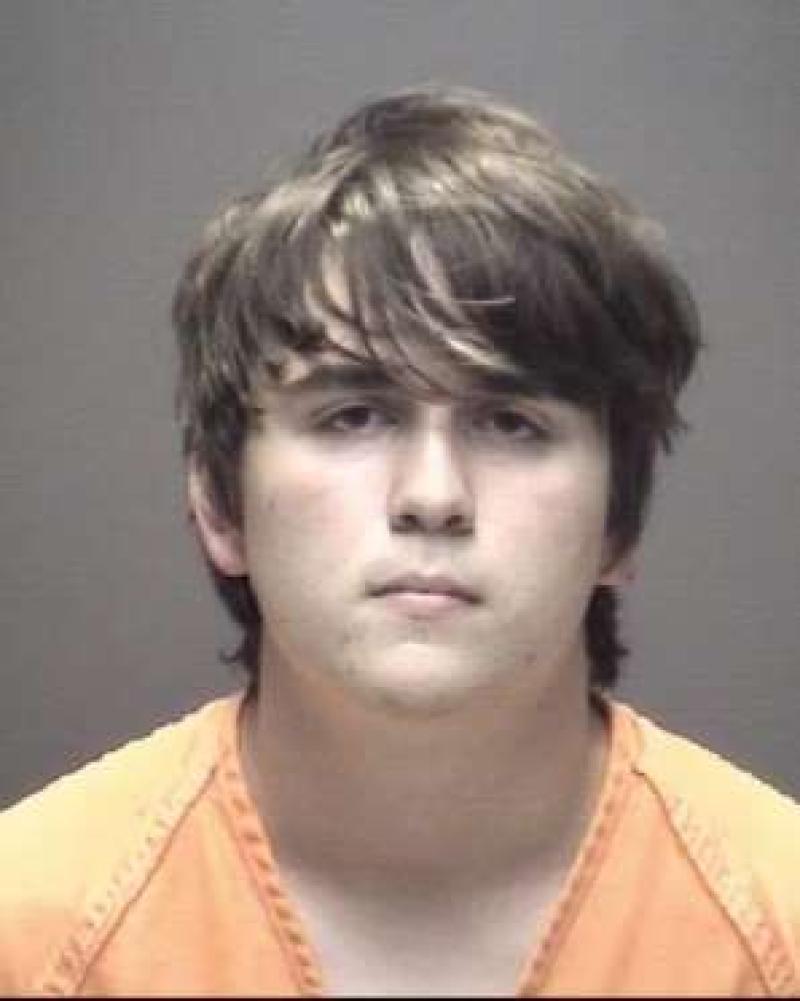Why Texas School Shooting Suspect Dimitrios Pagourtzis Won't Face the Death Penalty

On the morning of May 18, police responded to reports of an active shooter at Santa Fe High School in Santa Fe, Texas. By mid-morning, the suspect, 17-year-old Dimitrios Pagourtzis, had been arrested and by 3 p.m. EDT, Texas Governor Greg Abbott confirmed in a press conference the casualties: 10 people dead and 10 others injured.
Pagourtzis was booked into Galveston County Jail on one charge of capital murder of multiple persons and one charge of aggravated assault against a public servant. He has been denied bond.
After Pagourtzis was booked, a question popped up: Can the state of Texas execute a minor charged with capital murder?
The age of criminal responsibility in the state of Texas is 17, meaning 17-year-olds are considered adults, not juveniles, in the criminal justice system. Last year, legislation that proposed raising this age to 18 failed to pass the state's Senate, the Houston Chronicle reported.
According to the Texas Department of Criminal Justice, there are 10 offenses that can be considered capital murder in the state, including "murder of more than one person during the same criminal transaction." The Lone Star state also "leads the nation in the number of executions since the death penalty was reinstated in 1976," per the criminal justice department's website.
But there are two reasons why, even with this charge, Pagourtzis can't be put to death.
First, according to the Texas penal code, "a sentence of life imprisonment is mandatory on conviction of the capital felony, if the individual committed the offense when younger than 18 years of age."
Additionally, there's the 2005 U.S. Supreme Court decision Roper v. Simmons, which concerned the case of Christopher Simmons, a Missourian who in 1993 at age 17, was sentenced to death, according to Oyez. Simmons and accomplice Charles Benjamin, as reported by The New York Times, took 46-year-old truck driver Shirley Ann Crook from her home in Fenton, Missouri, tied her up and pushed her off a bridge. Her body was recovered the day after. Both Simmons and Benjamin were found guilty.
After appeals in the Missouri Supreme Court, the U.S. Supreme Court decided in a 5-4 ruling that the execution of minors is "cruel and unusual punishment" and unconstitutional under the Eighth Amendment. Texas executed 13 juveniles before this Supreme Court decision, according to the Death Penalty Information Center, a nonprofit that reports on capital punishment.
The state, obviously, won't bother seeking a death sentence because it's legally off the table, according to Houston criminal defense attorney Neal Davis. If Pagourtzis is convicted of capital murder, he will be eligible for parole after serving 40 years, Davis said. Why the distinction of capital murder for those under 18? Texans convicted of non-capital murder are eligible for parole after 30 years.
Davis thinks the state will seek multiple life sentences. "Given that death is not an option, I would expect the state to not negotiate the case for anything less than a life sentence—particularly given how many innocent children were killed," he told Newsweek .


Things that make you go Hmmmm
It will probably be life without parole. He most likely will be incarcerated in a youth facility until the age of 18 and then transferred to an adult prison. But if tried as an adult, he may go directly to prison.
It's difficult to navigate serving justice, without solving the problem. Not that I have an issue with justice being served; but, what is the solution?